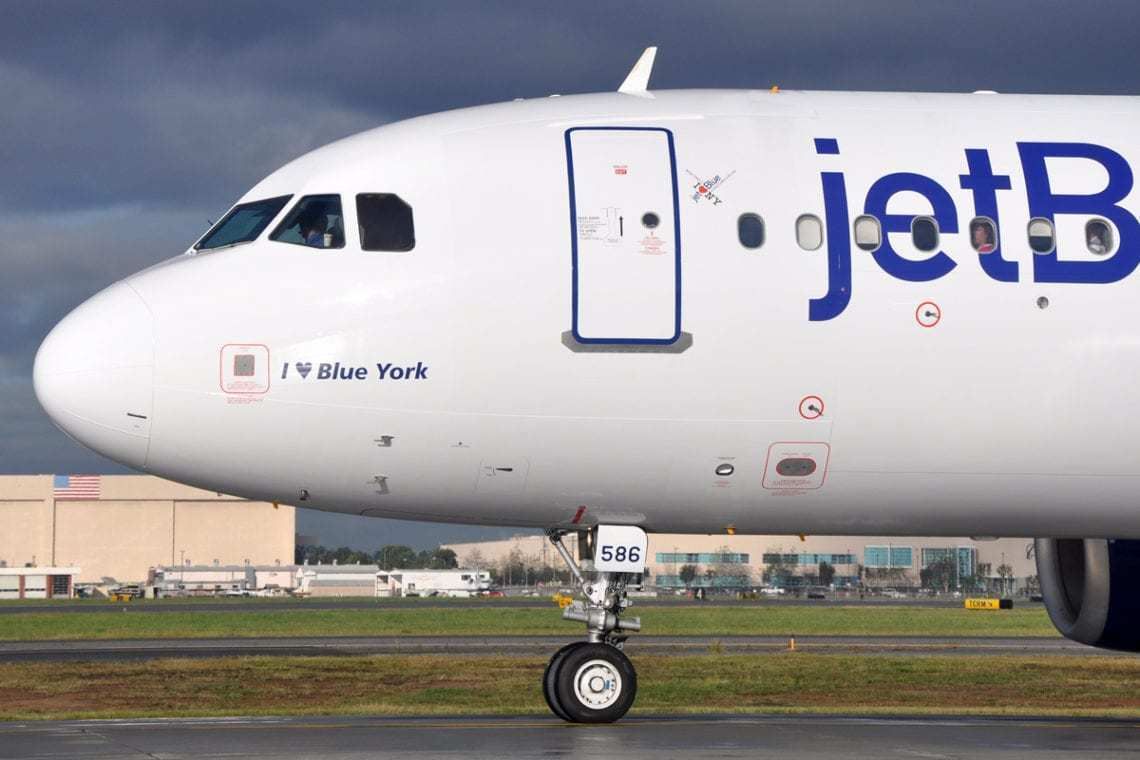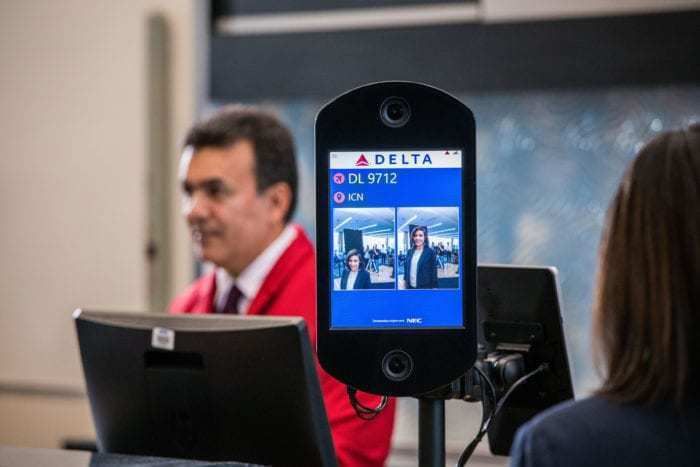JetBlue introduced a boarding gate powered by facial recognition at JFK back in November. While the trial was intended to be harmless, serious privacy concerns around the trial have now arisen.However, JetBlue isn't the only aviation company trialling facial recognition. In fact, this summer a full-scale rollout of facial recognition technology will be accomplished at Heathrow Airport. Additionally, Delta implemented facial recognition software in Atlanta in November. With little opportunity to opt out of facial recognition, many are now worried about their privacy.
The JetBlue case
JetBlue began using facial recognition technology at New York's JFK airport last November. The photos taken are transmitted to the US Customs and Border Protection database, where they are matched against existing facial recognition records. It appears that CBP compiles a preloaded database of all the people on a flight. Images at the gate are then matched against this precompiled database.
One Twitter user began to question the airline regarding the new software. Passengers have the option to opt out at the scanners, however, by this point, the database has already been compiled. There is no way to opt out of being included in the database which is where the issue arises. In a reply to the original tweeter, JetBlue stated "We should clarify, these photos aren't provided to us, but are securely transmitted to the Customs and Border Protection database. JetBlue does not have direct access to the photos and doesn’t store them."
Should I worry about facial recognition?
The Electronic Frontier Foundation describes itself as "defending civil liberties in a digital world". They commented on Twitter: "It’s unprecedented for the government to collect and share this kind of data, with this level of detail, with this many agencies and private partners. We need proper oversight and regulation to ensure our privacy is protected."
However, it seems as though to only people with direct access to this data are government agencies. In particular, this would be the CBP, who already have access to the facial data compared through a biometric database. As the data from the cameras is simply compared to existing data, and not usually stored, there should be very little to worry about. However, if JetBlue had access to this data themselves, then there could be cause for concern.
Images of US Citizens are deleted after 12 hours, however, non-US citizens will have their photo stored "as a biometric confirmation of departure from the United States". Of course, should this data be passed on to other agencies, then there could be cause for concern. By 2023, 97% of departing passengers will be processed by facial recognition according to the Department for Homeland Security.
JetBlue's response
Simple Flying spoke to a JetBlue representative who elaborated on the situation. JetBlue at no point has access to any data. The airline provides a passenger manifest to the CBP for any international flight. They added, "The photo captured at the gate is sent directly to CBP, who then compares it against their passport gallery of those on that specific flight. If a match is found, they will return the confirmation number to us, which we will then use to board the Customer". If there is no match, or a passenger opts to avoid biometric boarding, they will be processed manually.
JetBlue was clear to point out that this was not a new technology, and that the airline previously trialled it at Boston Airport in 2017. JetBlue is now using the software at key airports following successful trials.
Do you think passengers should worry about facial recognition? Let us know in the comments down below!
Updated at 19:20 UTC with JetBlue response.


